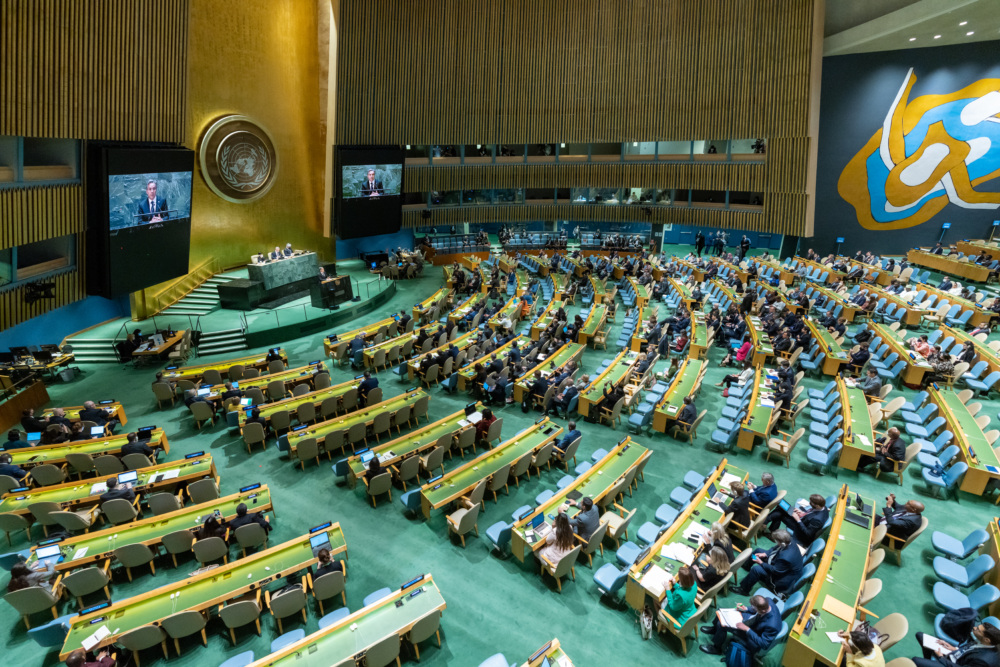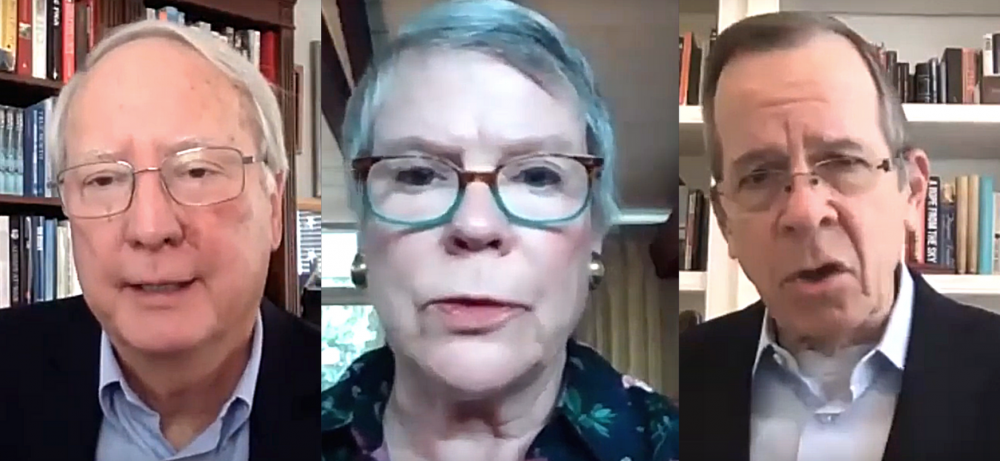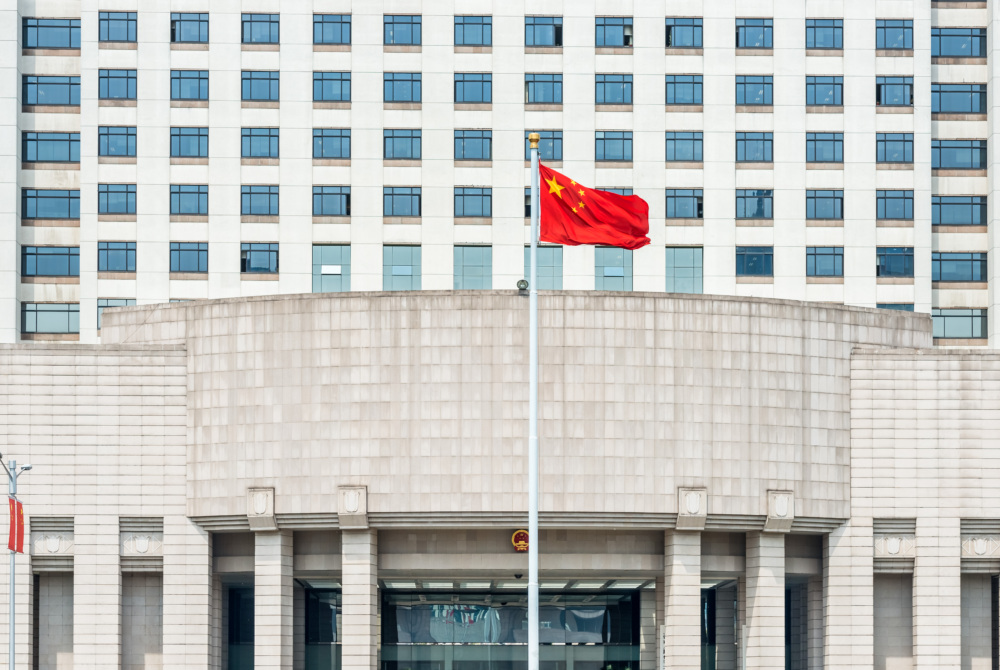This post was written by Luke Radice, an intern with NTI’s Global Nuclear Policy Program. Originally from Boise, Idaho, he graduated from Claremont McKenna College in 2019 with dual honors in International Relations and History.
Five more years of limits on U.S. and Russian strategic nuclear forces and inspections of weapons systems under an extended New START treaty would improve stability and security at a particularly delicate time, according to top national security and military experts. “We are more secure with the treaty, and we are immediately and dramatically less secure if we refuse to renew,” former Chairman of the Joint Chiefs of Staff (and NTI Board Member) Admiral (ret.) Michael Mullen, told a recent virtual panel on the subject hosted by the Arms Control Association.
Mullen joined former Under Secretary of State for Arms Control and International Security and the New START negotiator Rose Gottemoeller, and former NNSA Administrator and Commander of Air Force Global Strike Command, Lt. Gen. (ret.) Frank Klotz in making convincing arguments in favor of extending New START (formally the New Strategic Arms Reduction Treaty).
Among other limits, the treaty required a 30% reduction in deployed nuclear warheads, bringing the number to 1,550 in each country. New START came into force on Feb. 5, 2011 and is set to expire on Feb. 4, 2021, but under the treaty’s provisions, it can be extended until 2026, should both parties agree to do so. Russian President Putin has publicly expressed his willingness to extend the treaty, while the US government is currently “evaluating the possibility of extending New START” (Senior State Dept. Official, March 9th briefing), and President Trump has made clear his desire to negotiate a broader, trilateral deal that would include China.
Drawing on their extensive national security experience, all three experts, when asked about whether the treaty should be extended, gave an unqualified “yes.” Klotz pointed to the predictability provided by the treaty’s limits and inspection regime, saying that from a military planning standpoint, “knowing what your adversary’s capabilities are is vital for knowing that your own processes are sufficient, and military planners don’t have to assume the worst case. It is extremely important that we gain those five more years with Russian systems at predictable and stable levels.” Gottemoeller stressed the relative status of the U.S. and Russian nuclear modernization efforts, noting that “we are at the beginning of our modernization process, Russia is 3/4ths of the way through theirs…. It is absolutely vital that we continue the treaty to buy us time, and ensure predictability going forward.”
The speakers commended the benefits of the treaty, with Mullen particularly noting that while the Treaty does not cover tactical nuclear weapons, it is extremely effective in the area it is designed to cover – strategic nuclear forces. It has limited these “massively destructive weapons” and helped to reduce the chances of nuclear conflict—while providing needed stability and predictability for both the United States and Russia. “It gives us a comfort level because we can know what is going on” due to frequent inspections, he said. Gottemoeller expanded on the predictability point, noting that in a time of great uncertainty caused by the COVID-19 pandemic, it is invaluable to have a treaty that both limits expansion of Russian and U.S. nuclear arsenals and provides essential information to both parties.
The panelists also addressed the Trump administration’s arguments against New START extension, including the complaint that it does not address non-strategic nuclear weapons and would not capture all of the novel delivery systems Russia is developing. Klotz spoke at length on this point, noting that non-strategic nuclear weapons were never on the table during the negotiation of New START in part because it was known that Russia was unwilling to agree to anything on the topic. He also highlighted the work of NTI board member Jill Hruby in pointing out that two of the new systems – the Sarmat ICBM and Avangard hypersonic delivery vehicle carried by an ICBM – in fact would be counted under the treaty, while the remaining 3 Russian systems are extremely unlikely to be deployed “in sufficient numbers as to threaten stability before 2026, when an extended New START would expire.” While serving as NTI’s inaugural Sam Nunn Distinguished Fellow last year, Hruby produced Russia’s New Nuclear Weapon Delivery Systems: An Open-Source Technical Review. NTI experts Mark Melamed and Lynn Rusten produced a companion paper, Russia’s New Nuclear Weapon Delivery Systems: Implications for New START, Future Arms Control and Strategic Stability.
The panelists addressed the idea of refusing to extend New START in favor of negotiating an expanded treaty that would include China. Gottemoeller focused on practical considerations, noting that complex multilateral negotiations take tremendous amounts of time and effort, and would be made more complicated due to the COVID-19 crisis and having to meet virtually. The experts all agreed that there simply is not enough time to negotiate an expanded treaty, particularly considering that China would have to be brought into the fold for the first time, with its own specific preconditions and without the long history of bilateral arms control that the United States and Russia share. The experts concluded that bringing China into a future treaty would be more feasible over the longer term, after years of work. They argued for extending New START to preserve limits and verification on Russia’s strategic nuclear weapons even while working for a future agreement or agreements with Russia and China.
Finally, Gottemoeller addressed the question of whether postponing a decision on New START extension would provide additional leverage against Russia. She noted that U.S. leverage had already worked, by getting Russia to drop its preconditions for extension and confirm that the Avangard and Sarmat systems would be subject to the Treaty. “Frankly, the leverage has already worked rather well, we have at the moment the Russians saying they are ready and willing to extend New START,” she said. “I think we ought to grab it and go for it.”




